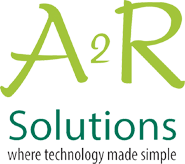
Accounting Software: Streamlining Financial Management for Businesses
In today’s fast-paced business environment, managing finances efficiently is crucial for success. Gone are the days of manual bookkeeping and spreadsheet juggling; modern businesses rely on accounting software to streamline their financial processes. In this article, we’ll explore the importance of accounting software, different types available, key features to look for, popular solutions, implementation steps, benefits, challenges, tips for maximizing its potential, and future trends.
Importance of Accounting Software
Streamlining Financial Processes
Accounting software automates repetitive tasks like invoicing, payroll, and expense tracking, allowing businesses to save time and reduce errors. By automating these processes, companies can focus on strategic decision-making rather than getting bogged down in administrative tasks.
Improved Accuracy
Manual data entry is prone to human error, leading to inaccuracies in financial records. Accounting software minimizes the risk of errors by automating calculations and ensuring data consistency across all financial documents.
Enhanced Reporting and Analysis
With robust reporting features, accounting software provides real-time insights into a company’s financial health. Business owners can generate custom reports, analyze trends, and make informed decisions based on accurate financial data.
Types of Accounting Software
There are three main types of accounting software: cloud-based, on-premises, and hybrid solutions. Cloud-based software, such as QuickBooks Online, offers anytime, anywhere access and automatic updates. On-premises software is installed locally on a company’s servers, providing greater control over data but requiring more IT resources. Hybrid solutions combine the flexibility of cloud-based software with the security of on-premises solutions.
Key Features to Look for in Accounting Software
When choosing accounting software, consider factors like ease of use, integration capabilities, security measures, and scalability. Look for software that can seamlessly integrate with other business tools and offers robust security features to protect sensitive financial data.
Factors to Consider When Choosing Accounting Software
When selecting accounting software, assess your business size, needs, budget, and user-friendliness. Consider factors like customer support and future scalability to ensure the software can grow with your business.
Steps to Implement Accounting Software
Implementing accounting software involves assessing current systems, selecting the right software, training staff, migrating data, and providing ongoing support. Proper planning and execution are essential to ensure a smooth transition and maximize the software’s benefits.
Benefits of Using Accounting Software
Accounting software offers numerous benefits, including time and cost savings, better decision-making, and compliance with regulations. By automating routine tasks and providing real-time insights, it empowers businesses to operate more efficiently and effectively.
Challenges of Implementing Accounting Software
Despite its benefits, implementing accounting software can pose challenges such as resistance to change, data security concerns, and integration issues. Addressing these challenges requires effective communication, training, and proactive problem-solving.
Tips for Maximizing the Benefits of Accounting Software
To get the most out of accounting software, invest in regular updates and training, utilize advanced features, and monitor key metrics. By staying informed and proactive, businesses can leverage their software investment to drive growth and success.
Future Trends in Accounting Software
The future of accounting software is marked by trends like artificial intelligence, blockchain technology, and mobile accounting apps. These innovations promise to further streamline financial processes, improve data accuracy, and enhance decision-making capabilities.
Conclusion
Accounting software plays a vital role in modern business operations, enabling companies to manage their finances efficiently, make informed decisions, and stay compliant with regulations. By understanding its importance, choosing the right solution, and implementing best practices, businesses can unlock the full potential of accounting software to drive growth and success.
Unique FAQs
How much does accounting software cost?
The cost of accounting software varies depending on factors like features, number of users, and subscription plans. Prices can range from free for basic versions to hundreds of dollars per month for enterprise solutions.
Can accounting software integrate with other business tools?
Yes, most accounting software solutions offer integration capabilities with other business tools such as CRM software, payroll systems, and inventory management software.
Is accounting software suitable for non-profit organizations?
Yes, many accounting software solutions offer features tailored to the needs of non-profit organizations, such as fund accounting and donation tracking.
How often should I update my accounting software?
It’s recommended to update your accounting software regularly to ensure you have the latest features, security patches, and compliance updates.
Are you looking for accounting software companies in Dubai, business accounting software companies in Dubai, HR & Payroll software companies in Dubai, sage 50 UK accounting software in Dubai or sage 300 erp in Dubai at very competitive pricing? Contact us for accounting software companies in Dubai, business accounting software companies in Dubai, HR & Payroll software companies in Dubai, sage 50 UK accounting software in Dubai or sage 300 erp in Dubai at very genuine pricing.



